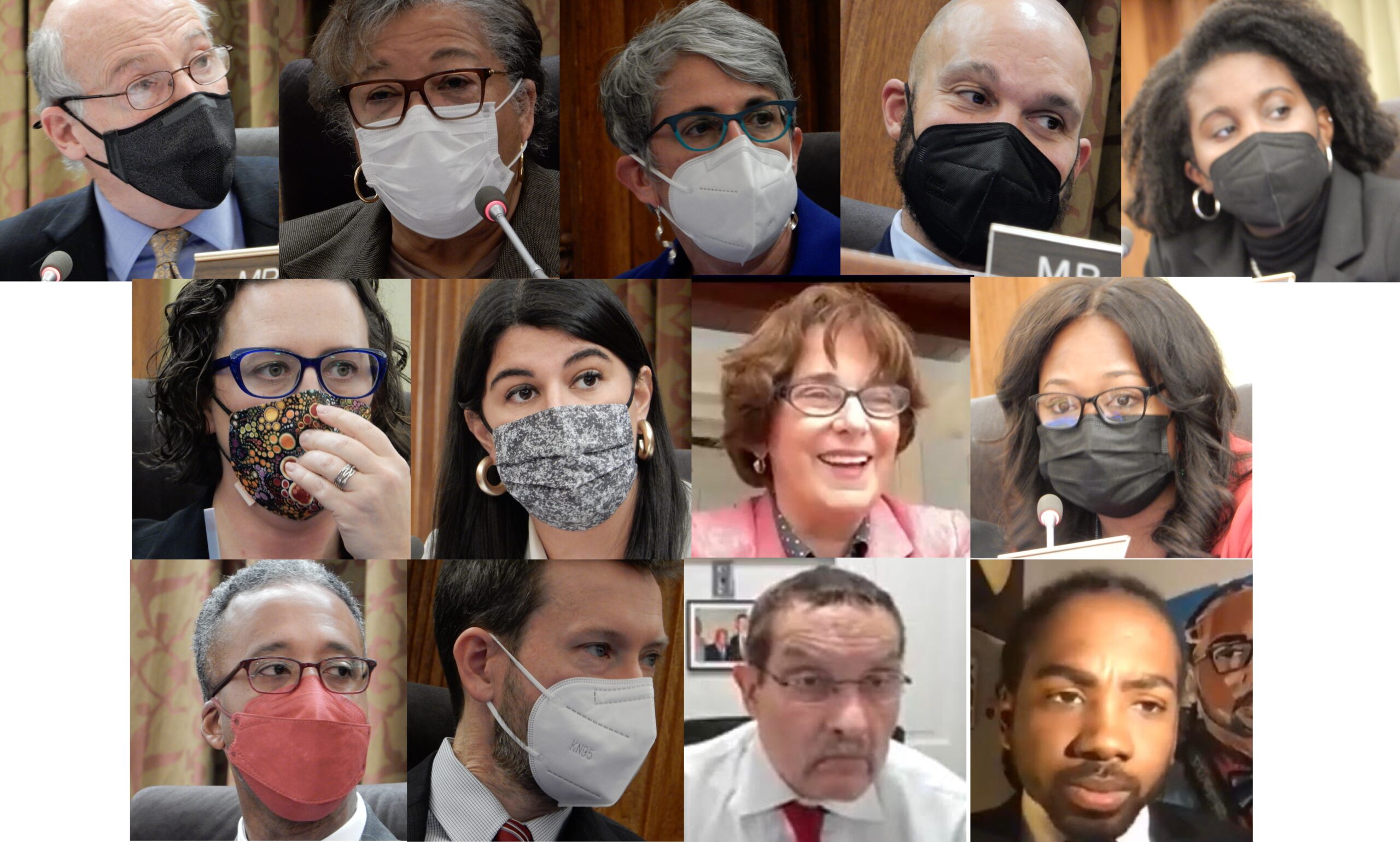Fond Farewells, Housing Authority Restructuring, Marijuana Business Reforms, and Free Bus Rides Wrap Up Council Period 24

The end of a two-year Council Period is a bittersweet time. From a legislative perspective, any bills that have not received the requisite two votes prior to the end of the two years must begin the legislative process anew in the next Council Period. Yet, when the new two-year cycle begins, it is a time of promise and energy, with a flurry of new ideas and bill introductions especially in the early days. And from a personnel perspective, it is a time when we bid farewell to beloved outgoing councilmembers while preparing to welcome new freshman members.
At the most recent Legislative Meeting, much legislation made it through the Council Period 24 gauntlet, surviving the legislative process and beating the end-of-year deadline. Chief among these bills was an organizational reform of the embattled DC Housing Authority (DCHA). Starting with a mayoral proposal as a baseline, the Council legislation replaced the organization’s current board of directors with a smaller stabilization and reform board, while also increasing the voice of residents, voucher holders, and homelessness services advocates on that board from what the mayor had proposed. Passed as an emergency bill, the DCHA reform legislation only required a single vote of the Council, albeit with a super-majority of nine votes. The emergency bill will only remain in effect for 90 days as a permanent version of the bill works its way through the traditional legislative process in Council Period 25.
Also passed on an emergency basis at the most recent legislative meeting was a bill to temporarily increase the District’s hotel tax by one percent. These funds will be dedicated entirely to funding a marketing campaign designed to attract visitors—especially the higher-spending, longer-staying international visitors who have been slow to return following COVID’s peak—back to the District. This increase comes in direct response to a request from the District’s tourism authorities and hotel association, who feel that any dissuasive effect the small tax increase might engender will be far outweighed by the positive impact of the marketing campaign and the visitor dollars it attracts.
Receiving the second of two necessary votes at the final meeting of the Council Period were measures to:
- Provide free Metrobus service for all District riders beginning July 1, 2023. Additionally, the bill would create all-night service on the system’s dozen busiest lines, and invest $10 million in improvements to bus lines and shelters with a demonstrated reliability and equity impact.
- Continue the broad expansion of the District’s medical cannabis market by building on the existing patient self-certification process and creating new license categories. For the first time, the bill also creates a pathway for current so-called gray market “gifting” establishments to transition to legal medical cannabis sales, while also establishing eventual penalties for businesses that do not transition.
- Create a bill of rights for domestic workers, ensuring that their work behind closed doors in private homes is entitled to the same protections as work done in more commercial workplaces
- Require DCPS to start each school’s budget for the next year using the baseline of the current year, with only very specific grounds for reductions. Absent unusual circumstances, this effectively bans reductions in individual school budget numbers from year to year.
- Improve the safety of children heading to and from school, via infrastructure improvements focused on visibility, speed restriction, and pedestrian safety, especially in the highest-risk areas
- Increase the minimum monthly Supplemental Nutrition Assistance Program (SNAP) payment, to partially compensate for the District’s high grocery prices, and to allow the purchase of healthier (and often pricier) foods
- Expand and streamline eligibility for Emergency Rental Assistance Program (ERAP) funds, and increase the maximum available payment, due to the increased cost of rent
- Narrow and accelerate the background check process for teachers and school volunteers in an effort to fill these roles more expeditiously
- Simply basic business licensing for current or new businesses by reducing licensing categories, decreasing license costs, and eliminating outdated requirements
- Increase the mayor’s salary (such increases are not allowed during an ongoing term, so they tend to occur at the end of an ongoing four-year term. The salary of the Council chair and attorney general will also increase since they are determined using the baseline of the mayor’s salary)
- Put in place (or extend current emergency/temporary) public safety measures, including those that would prohibit the use of neck restraints and tear gas, increase access to body-work camera footage, reform use of force and officer discipline procedures, help restore credibility in the District’s forensic services, implement reforms at the Department of Corrections, broaden the sealing/expungement of some criminal records, and clarify/expand the Office of the Inspector General’s investigatory role.
At the end of the meeting, councilmembers bid a heartfelt and emotional farewell to their departing colleagues, Ward 3’s Mary Cheh and At-Large Councilmember Elissa Silverman. Yet, with the knowledge that former councilmembers are fairly frequent visitors to the Council Chamber, we hope to again share their company from the other side of the dais sometime soon.
On January 2, newly elected and re-elected councilmembers (as well as the mayor, attorney general, State Board of Education, statehood delegation, and Advisory Neighborhoood Commissioners) will be sworn into office. The following day, the Council will convene first for an organizational meeting, at which it will approve its Council Period 25 officers, committee structure/membership, and rules. That same day, the first Legislative Meeting of the new Council Period will also be held.